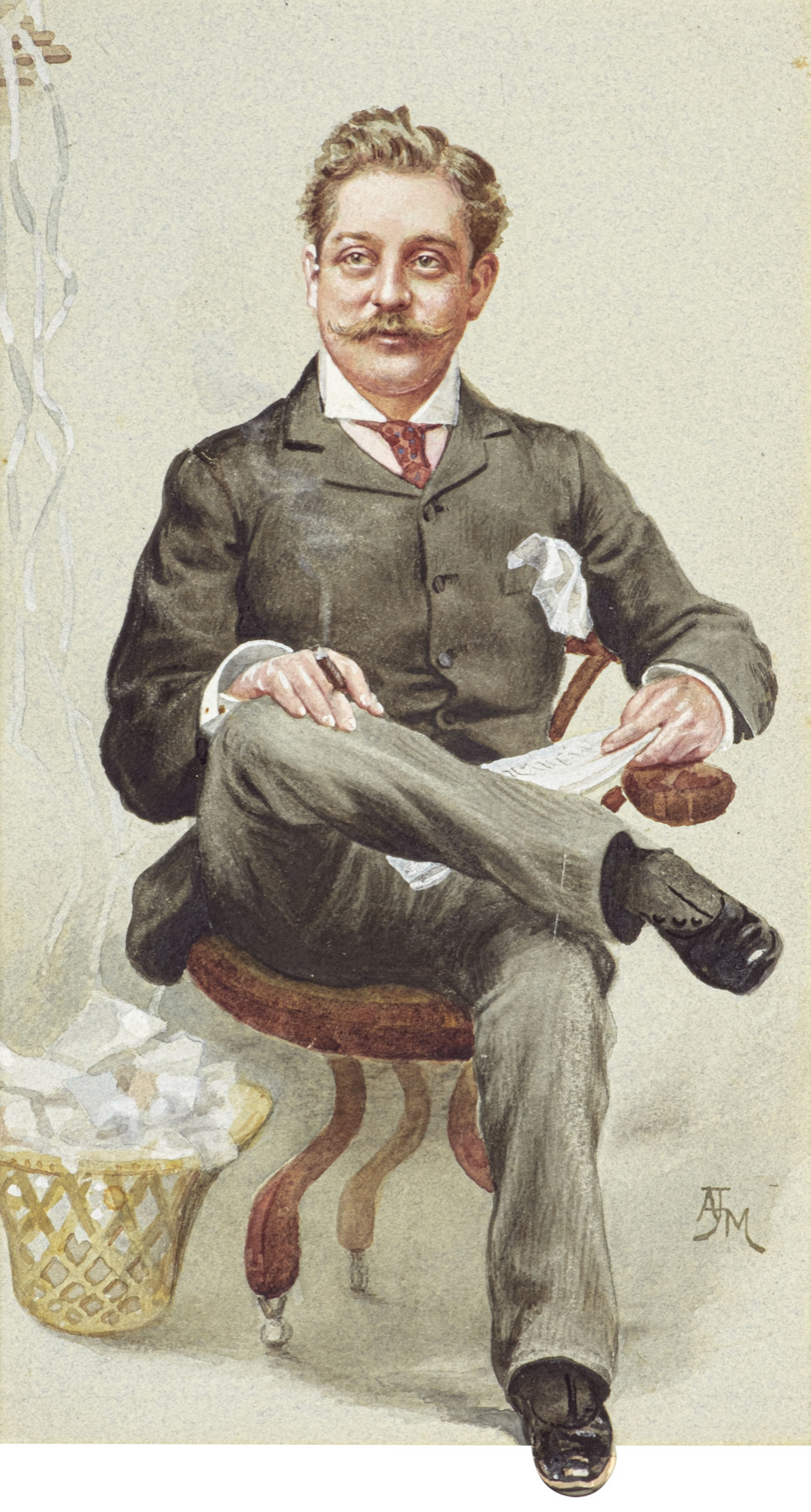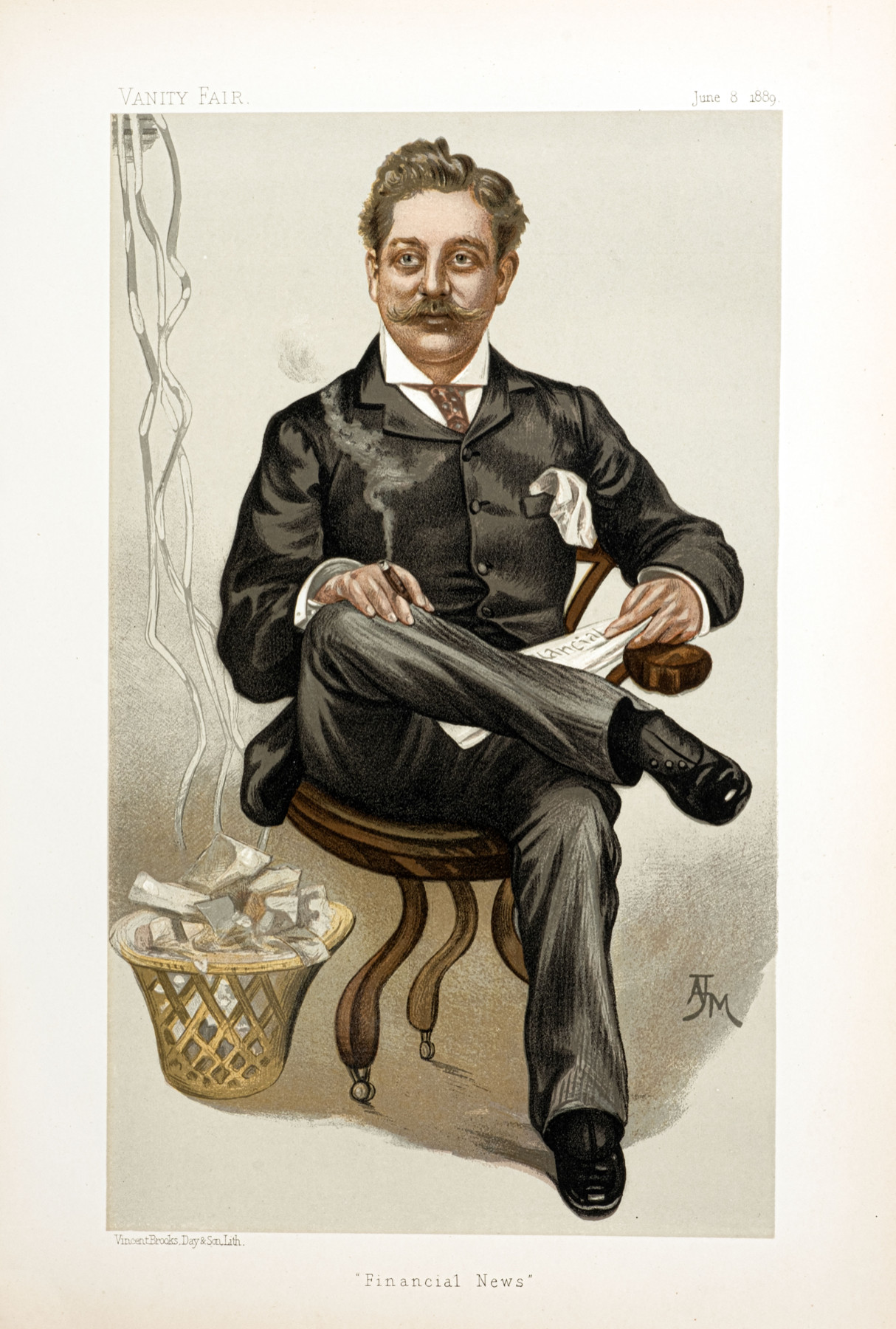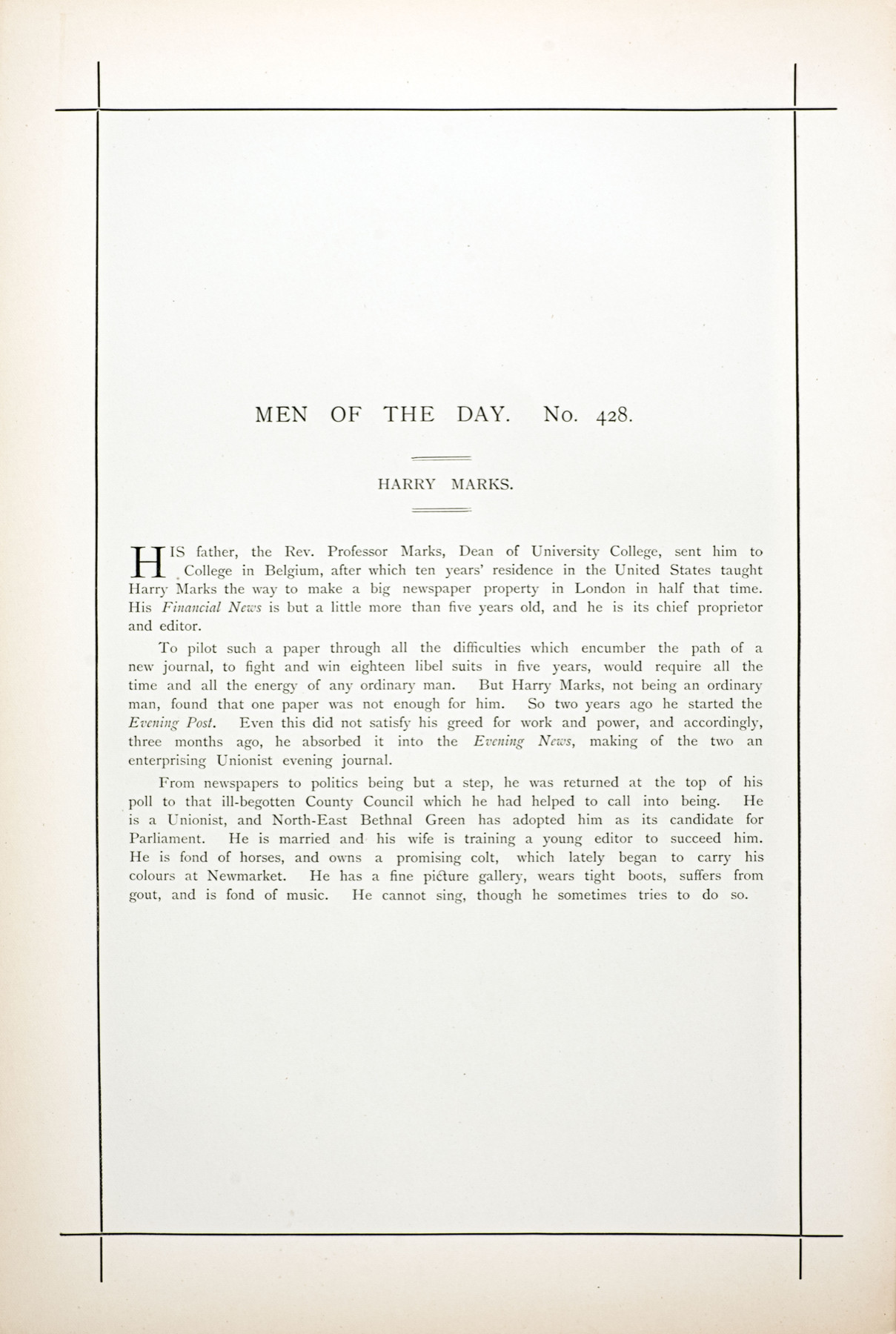


Born in London, Harry Marks (1855-1916) moved to the United States at the age of sixteen, where he would remain until 1883. He began his journalistic career in Texas, before moving to New York. In 1883, he returned to London and established himself as the chief proprietor and editor of the Financial and Mining News, London's first financial daily, predating the Financial Times by 4 years. The paper became extremely popular, in a sector that had developed a dull reputation. It held a strong line in investigative journalism, exposing a vein of corruption in the Metropolitan Board of Works in 1888. Marks entered politics in 1889 as a member of the first London county council, but failed to become MP for Bethnal Green in 1892. In 1895 he gained a narrow victory at St George-in-the-East, a seat he held until 1900.
“His father, the Rev. Professor Marks, Dean of University College, sent him to College in Belgium, after which ten years’ residence in the United States taught Harry Marks the way to make a big newspaper property in London in half that time. His Financial News is but a little more than five years old, and he is its chief proprietor and editor.
To pilot such a paper through all the difficulties which encumber the path of a new journal, to fight and win eighteen libel suits in five years, would require all the time and all the energy of any ordinary man. But Harry Marks, not being an ordinary man, found that one paper was not enough for him. So two years ago he started the Evening Post. Even this did not satisfy his greed for work and power, and accordingly, three months ago, he absorbed it into the Evening News, making of the two an enterprising Unionist evening journal.
From newspapers to politics being but a step, he was returned at the top of his poll to that ill-begotten County Council which he had helped to call into being. He is a Unionist, and North-East Bethnal Green has adopted him as its candidate for Parliament. He is married and his wife is training a young editor to succeed him. He is fond of horses, and owns a promising colt, which lately began to carry his colours at Newmarket. He has a fine picture gallery, wears tight boots, suffers from gout, and is fond of music. He cannot sing, though he sometimes tries to do so.”